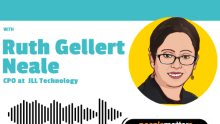Is Singapore ready for the rise of AI agents?

Will you lead a team of AI agents – or be replaced by one?
Singaporean businesses are making strides in integrating AI agents into their workflows, and Microsoft’s latest Work Trend Index is a wake-up call for HR, tech, and business leaders.
The future of work is becoming deeply collaborative, with AI agents as core teammates.
The findings paint a compelling picture of a nation ready to rewire its organisational DNA, blending human and artificial intelligence to create what Microsoft dubs the “Frontier Firm”.
A capacity crisis on the horizon
The report’s opening salvo is stark: 81% of Singapore’s workforce is running on empty, citing a lack of time and energy to keep pace with mounting demands. Leaders aren’t blind to this: 58% say productivity must rise. Expectations are ballooning, but bandwidth is shrinking.
This is more than just a work-life balance issue. It signals an emerging capacity crisis, one that threatens to clog the cogs of business unless tackled head-on.
Microsoft’s telemetry data drives the point home: Singaporean employees are interrupted every two minutes – death by a thousand pings, meetings, and emails. It’s no wonder the workforce feels like it’s sprinting on a treadmill with no stop button.
AI as a digital force multiplier
Rather than adding more boots on the ground, leaders are turning to AI agents as a force multiplier. A striking 82% of Singapore’s business leaders say they plan to use AI agents to expand workforce capacity within the next 12 to 18 months. This isn’t AI for the sake of novelty but as a business imperative.
This shift reframes AI from a shiny tool to a strategic asset, akin to tapping a limitless reservoir of digital brainpower. Think of it as intelligence on tap – scalable, affordable, and available 24/7. A team of AI agents can process data at lightning speed, generate insights, and execute routine tasks – all without coffee breaks or commutes.
The result is a radical reimagining of organisational structure. Where once hierarchies reigned, fluid “Work Charts” now emerge. Teams form not around departments but around outcomes. The marketing or finance silos give way to agile pods of humans and agents united by purpose, not titles.
The rise of the hybrid team: human + agent
This isn’t a sci-fi fantasy. More than half of Singaporean leaders (56%) already use AI agents to fully automate workstreams. This is well above the global average. These aren’t merely chatbots but intelligent collaborators acting as researchers, analysts, and even creative partners.
Importantly, workers aren’t afraid of being replaced – they’re looking to AI to augment, not substitute. In fact, 47% of employees see AI as a “thought partner,” with 24/7 availability (39%) and machine-like precision (30%) cited as key benefits. In short, humans are doing what they do best – creativity, judgment, empathy – while delegating the grind to machines.
What is the 'Frontier Firm'?
Microsoft introduces the concept of the Frontier Firm – organisations defined not by headcount but by velocity and versatility. These companies, powered by AI-human hybrids, are thriving.
Employees at Frontier Firms are twice as likely to report they’re doing meaningful work and taking on more without burning out.
In Singapore, the seeds of this model are already being sown: 40% of leaders list digital labour as a top near-term priority, second only to upskilling. That’s because AI isn’t just an add-on; it requires an overhaul. Job descriptions will evolve, and new roles like AI agent specialists, AI trainers, and AI workforce managers will become standard fare on org charts.
Every employee will become a CEO of agents
Perhaps the most revolutionary shift lies in mindset. Microsoft envisions a world where every employee becomes an agent boss – delegating tasks to a team of AI agents the way a CEO delegates to department heads. This democratisation of decision-making and execution could flatten hierarchies and amplify individual impact.
Singaporean business leaders are leaning in, with 80% already familiar with AI agents, compared to just 41% of employees.
The onus now falls on managers: 51% say upskilling their teams in AI is a core priority over the next five years. Beyond learning how to use AI, employees will be expected to train, manage, and orchestrate AI ecosystems.
Imagine a marketer building a multi-agent system that automates campaigns end-to-end, or an operations executive tweaking AI workflows like a conductor fine-tuning an orchestra.
The cutting edge belongs to the bold
The Asia-Pacific region, particularly Singapore, is setting the pace in AI adoption. With 53% of APAC leaders already using agents to automate business processes – above the global average of 46% – early adopters are already seeing benefits.
This proactive approach could translate into a competitive edge in innovation, operational efficiency, and talent attraction over the next decade.
In the age of AI agents, success won’t be measured by how many people a company employs, but how effectively its human and digital minds work together.
The organisational chart, as we know it, is being torn up. In its place: a dynamic, AI-infused map of roles, outcomes, and opportunity – one where everyone has a chance to lead, if not by authority, then by agility.















